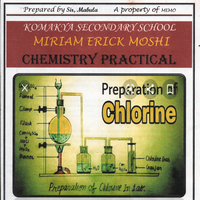Search
Books+
Searching 1,73 books
Search related to the career Chemical Engineer
How to Become a Chemical Engineer:
1. Earn a Bachelor's Degree: Obtain a bachelor's degree in chemical engineering or a related field. This typically takes four years of full-time study.
2. Gain Relevant Experience: Seek internships or co-op positions during your undergraduate studies to gain practical experience in the field. This can help you apply theoretical knowledge to real-world scenarios.
3. Develop Strong Math and Science Skills: Chemical engineering requires a solid foundation in mathematics, chemistry, physics, and biology. Focus on building these skills during your education.
4. Consider Advanced Education: While not always necessary, pursuing a master's or doctoral degree in chemical engineering can provide you with a competitive edge and open up more advanced career opportunities.
5. Obtain Professional Licensure: In some countries or states, chemical engineers are required to obtain a professional engineering license. This typically involves passing an exam and meeting specific education and experience requirements.
6. Join Professional Organizations: Consider joining industry-specific organizations such as the American Institute of Chemical Engineers (AIChE) or the Institution of Chemical Engineers (IChemE). These organizations provide networking opportunities and access to resources that can enhance your career.
7. Stay Updated with Industry Trends: Chemical engineering is a rapidly evolving field. Stay informed about the latest advancements, technologies, and research by reading scientific journals, attending conferences, and participating in continuing education programs.
8. Develop Strong Communication and Problem-Solving Skills: Effective communication and problem-solving abilities are crucial for chemical engineers. Work on developing these skills through teamwork, presentations, and practical projects.
9. Seek Employment: Apply for entry-level positions in chemical engineering firms, research institutions, manufacturing companies, or government agencies. Gain practical experience and continue to learn and grow in your field.
10. Consider Specialization: Chemical engineering offers various specializations such as process engineering, materials engineering, environmental engineering, and more. Consider specializing in a specific area to further enhance your expertise and career prospects.
Remember to research the specific requirements and regulations in your country or region, as they may vary.
Source: Various AI tools
Uhandisi
Books tagged engineering
Computer science
Sayansi
Books tagged science
Chuo
Books tagged college
Searched in English.





































